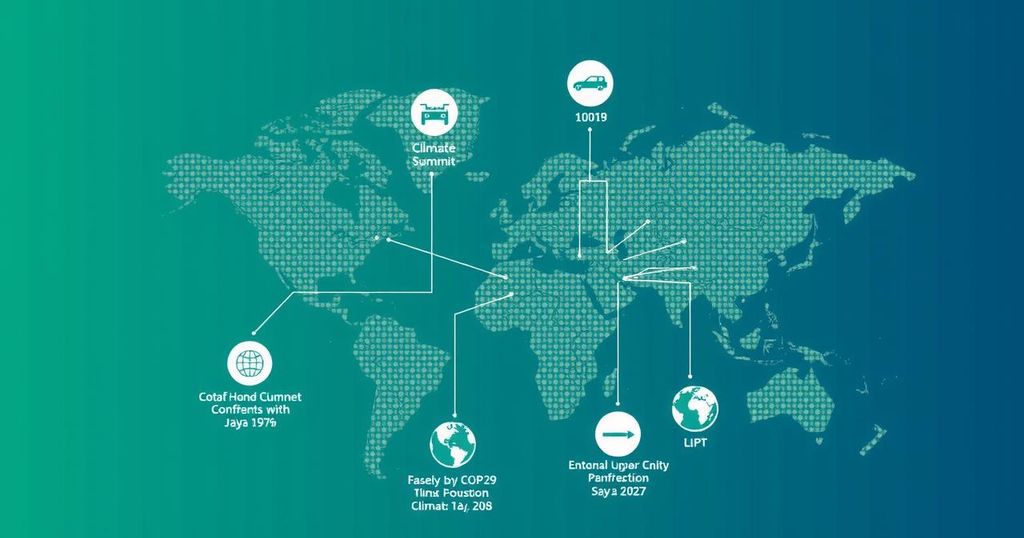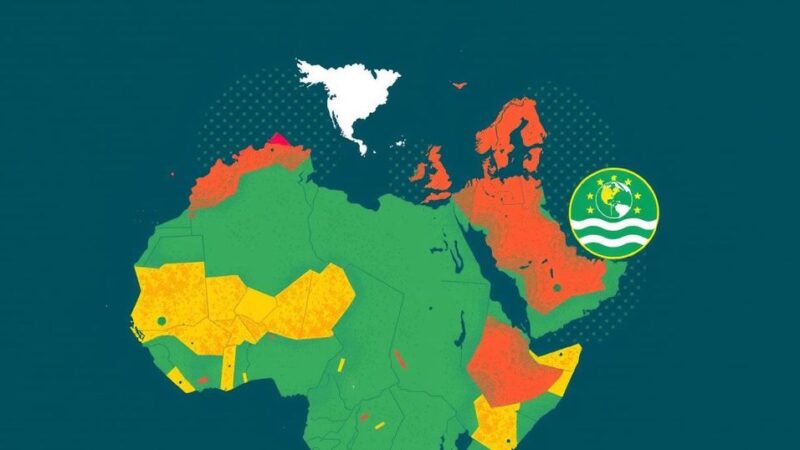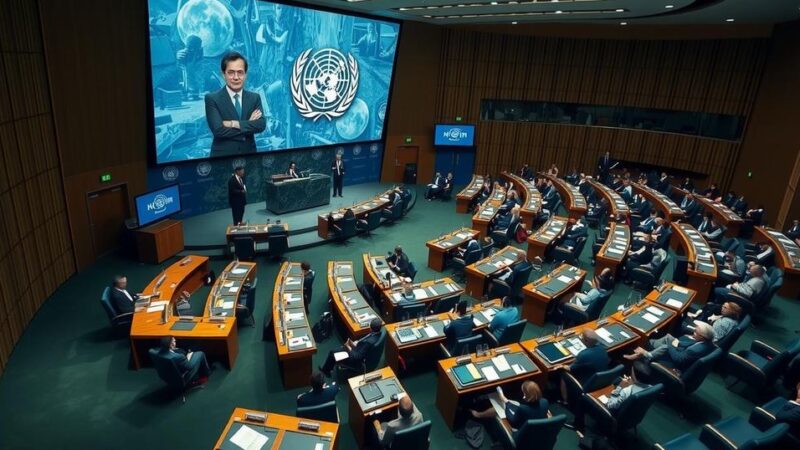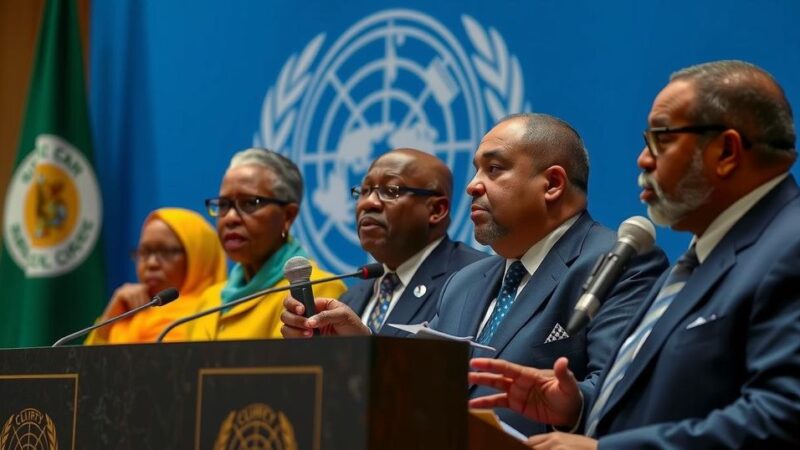The COP29 summit in Baku resulted in a $300 billion annual climate finance agreement for 2035, criticized by developing nations as inadequate. Trump’s election raised concerns about U.S. commitments, while the establishment of a carbon credit framework was a notable advancement. However, the summit faced challenges regarding the influence of fossil fuel interests and trade barriers affecting developing economies, highlighting the need for urgent action in the face of ongoing climate crises.
The COP29 climate summit held in Baku, Azerbaijan, concluded with a deal on climate finance, albeit two days past the original deadline after intensive negotiations. The agreement set a target of $300 billion annually by 2035 for global climate finance, which was criticized by developing nations for being insufficient to facilitate their transition to clean energy. Countries like India expressed dissatisfaction, particularly with proposals that would include developing nations’ contributions in this target.
The election of climate skeptic Donald Trump in early November dampened the summit’s atmosphere. Trump’s commitment to withdrawing the United States from global climate efforts raised concerns about the world’s largest historical emitter contributing effectively to COP29 discussions. This situation reduced ambitions surrounding the financial commitments needed to address climate change.
One significant advancement was the establishment of a framework for carbon credits after nearly a decade of efforts. This agreement allows countries to create, trade, and fund projects to offset emissions more effectively. However, details regarding the structure and transparency remain to be finalized, leaving some uncertainty about the effectiveness of this mechanism.
Concern about the pace of the COP process was palpable, as countries recognized both greenhouse gas emissions and global temperatures persist in their upward trajectory. The implications of extreme weather events have become increasingly evident, leading to humanitarian crises in different regions due to severe flooding, drought, and other climate-related disasters. The urgency for decisive action grows more dire each year.
Trade discussions also took center stage, with developing countries advocating against trade barriers that hinder their investment in green technologies. Attention focused on Europe’s proposed carbon border tax (CBAM), alongside apprehensions about potential tariffs introduced by the Trump administration. The UN climate body agreed to address these trade issues in subsequent meetings.
Lastly, the summit’s setting in a fossil fuel-producing nation raised eyebrows, as voices of fossil fuel proponents suggested energy resources were a divine blessing. Many stakeholders expressed disappointment regarding the lack of progress in advancing a transition away from fossil fuels, viewing it as a symptom of the fossil fuel industry’s influence over climate negotiations.
Overall, COP29 presented mixed outcomes, showcasing the challenges of fostering global consensus on climate finance and action amidst various economic and political pressures.
The COP29 climate summit, part of a long-standing series of United Nations Climate Change Conferences, aimed to build upon previous agreements aimed at combating climate change. Set against the backdrop of increasing global temperatures and severe weather events, the summit sought to address financing for climate initiatives, particularly for developing nations that often bear the brunt of climate impacts despite their limited contribution to the crisis. Stakeholders included government representatives, environmentalists, and industry leaders, all of whom highlighted the urgent need for comprehensive, actionable strategies to reduce carbon emissions and enhance financial support for adaptation and mitigation efforts.
In conclusion, the COP29 summit illuminated critical challenges and advancements in the global response to climate change. While there was progress in establishing a framework for carbon credits and in setting finance targets, there remain significant hurdles, particularly regarding adequate financial commitments and the political landscape influenced by skeptics of climate action. The growing urgency stemming from climate impacts necessitates immediate and coordinated action across nations, emphasizing the importance of inclusivity in climate discussions to achieve meaningful progress.
Original Source: kathmandupost.com






